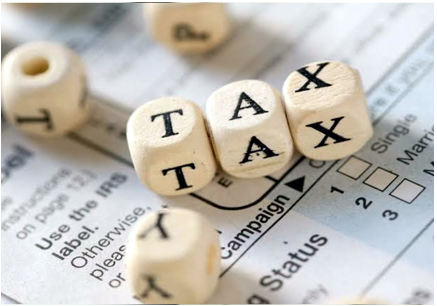i INP-WEALTHPK
Moaaz Manzoor
To meet fiscal goals and secure economic stability, Pakistan must fundamentally reform its tax system by eliminating exemptions, enforcing constitutional tax legislation, and widening the tax base, reports WealthPK.

The country’s fiscal health continues to hinge critically on its ability to reform and expand its tax system. Despite ambitious revenue targets set by the government, persistent structural flaws in tax policies and enforcement practices threaten the country’s economic stability and fiscal sustainability. The latest budget cycle targets Rs14.3 trillion in tax revenue, a substantial increase over the previous years.
However, experts warned that without meaningful reforms and equitable tax administration, these goals remain elusive. Speaking with WealthPK, tax expert Dr. Ikramul Haq said the erosion of the tax base was caused by numerous exemptions and concessions embedded within Pakistan’s federal and provincial tax codes.
These privileges disproportionately favor the elite segments, contributing to a growing wealth gap and undermining the principle of a fair tax system (equity in taxation). The Federal Board of Revenue’s (FBR) tax expenditures have surged from Rs3.879 trillion in FY2022-23 to an estimated Rs5 trillion in FY2024-25, signaling that vast amounts of potential revenue are lost annually through such reliefs.
Dr. Haq stressed that the rule of law must be upheld in tax matters, insisting that taxes should be legislated through parliamentary processes, not altered by executive orders or Statutory Regulatory Orders (SROs), which violate constitutional mandates and foster legal uncertainty. He highlighted that such executive overreach by the FBR breaches Articles 77, 162, and 189 of the Constitution, undermining transparency and accountability in tax governance.
For sustainable fiscal health, Dr. Haq advocated tax laws designed to motivate voluntary compliance by citizens, thereby strengthening Pakistan’s financial position and reducing dependence on external entities like the IMF and World Bank. Syed Ali Ehsan, Deputy Executive Director at PRIME, offered a pragmatic view on the government’s ambitious tax collection targets amid an economic slowdown and inflationary pressures.
He pointed out that raising tax revenues by an additional Rs2 trillion — equivalent to about 11% of the projected GDP — requires extraordinary fiscal measures. Historically, such fiscal tightening has disproportionately affected salaried taxpayers and those already within the tax net, without addressing the widespread exemptions enjoyed by powerful sectors such as large businesses, real estate, and agrarian landholders.
Ehsan warned that attempts to meet revenue targets will falter without broad-based reforms that tackle these exemptions and integrate all economic actors fairly into the tax system. He underscored the need for a comprehensive, realistic tax roadmap that balances the burden across society, avoiding excessive strain on the common populace, which could stifle economic modernization and growth.
The current Rs833 billion tax shortfall in the first 10 months of the fiscal year highlights the challenges the FBR faces in tax mobilization. Expert perspectives converge on a crucial message: Pakistan’s fiscal stability and economic progress depend on overhauling its tax system to widen the tax base, enforce constitutional governance, and ensure equitable compliance.
Incremental revenue targets without deep reforms risk perpetuating inefficiencies and social inequities. A credible and transparent tax framework would help achieve fiscal targets, restore public trust, and lay the foundation for sustainable growth. Without such systemic change, the country risks missing its fiscal targets and undermining long-term growth prospects.
Credit: INP-WealthPk



